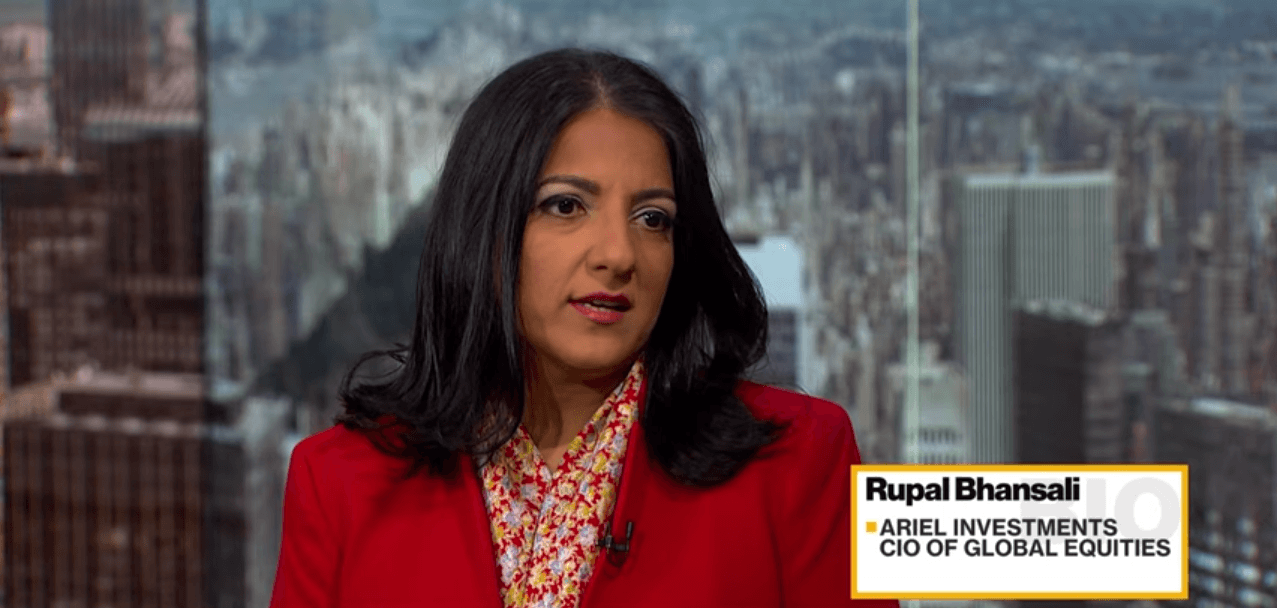When non-consensus investor and author Rupal Bhansali looks at Apple Computer, she sees a misunderstood company. “Apple is not a tech company,” the portfolio manager at Ariel Investments exclusively told ValueWalk. “It is really a consumer electronics company that tries to project itself as a tech company. The bulk the money they make is from selling hardware, which is not selling well because it is noncompetitive and actually losing market share.”

Finding misunderstood and mispriced situations is how Bhansali operates the value investing strategy inside the Ariel Global and International funds. The evaluation process is not only centered on pouring over earnings reports, which she considers a lagging indicator. It is about deeply understanding the business, its competitive landscape and making projections about where its future is headed based on information that is discovered before it assimilates into quarterly results.
“Our process starts by understanding risk first,” the veteran with more than 30 years running portfolios for the likes of George Soros and Oppenheimer Capital says. Stock selection first starts by filtering out stocks that have significant risk, which accounts for nearly 60% of the market. Then they look for investments that meet their non-consensus criteria: companies that are misunderstood by the market. This leaves a universe of only 20% of stocks from which to select.
Non-consensus investor on Amex, Costco deal
One such example of a misunderstood company involved American Express when it lost the COSTCO account, which the Wall Street consensus thought was a negative comment on the business model. “Amex did not lose their competitiveness,” in losing the account Bhansali noted. “The reason they lost the contract was because the winner appeared uneconomic and as a lost leader.” Such a move that resulted in the stock price falling wasn’t warranted, Bhansali said, because the core competitive nature of the business didn’t change. “It was actually a good decision to walk away from unprofitable business.”
Being a non-consensus or contrarian investor requires a strong discipline to endure holding a stock that might cause short term pain but result in long term gain. Microsoft is one of her leading examples. “There was a point when the consensus thought Apple Computer was going to eat Microsoft’s market share,” but Bhansali saw it differently. Apple was great with the consumer market, but they operated a closed operating system that didn’t translate into the enterprise market where the real money was to be made.
Bhansali invested in the stock and endured years of pain of a sinking stock price before the market finally realized Microsoft’s interoperability made it a strong investment.
Holding both temporary losers in a portfolio is part of the process, as is having a strong basis for the investment. Being a good contrarian isn’t just about investing after a stock price has been beaten down. Such investments need to be coupled with a fundamental understanding of the business model, otherwise it could result in acquiring a “value trap,” which Bhansali actively tries to avoid. “Time is the friend of the non-consensus investor,” she says, because it allows true value to shine.
Rupal on active vs passive
Overall she thinks active investing is misunderstood relative to passive, with a study by Martijn Cremers, “Active Share and the Three Pillars of Active Management: Skill Conviction and Opportunity,” showing that active is outperforming its benchmarks — when it is properly understood and categorized.
While she sees several mispricing opportunities at present, perhaps the biggest non-consensus opportunity is for women to enter the field of finance. Only 2% of mutual fund assets are solely run by women, including Bhansali, and she has a special message for them in her new book, “Non-Consensus Investing: Being Right When Everyone Else is Wrong.” The book’s last chapter outlines why women are well suited for asset management, noting that to see the opportunity they must overcome their own preconceived notions regarding what such a career choice means. “It’s not dry, or a cookie-cutter business,” but rather numbers are used to understand business competitiveness. Bhansali sites patience and investing for the long term as opposed to short term aggressiveness as keys to winning.
While a few bad apples can give the industry a bad name, “the vast majority of people in finance are moral,” she said. But when dealing with problems, such as running into misogyny or sexual harassment at work, Bhansali says its best to “speak out, don’t put out.”
This article first appeared on ValueWalk Premium





